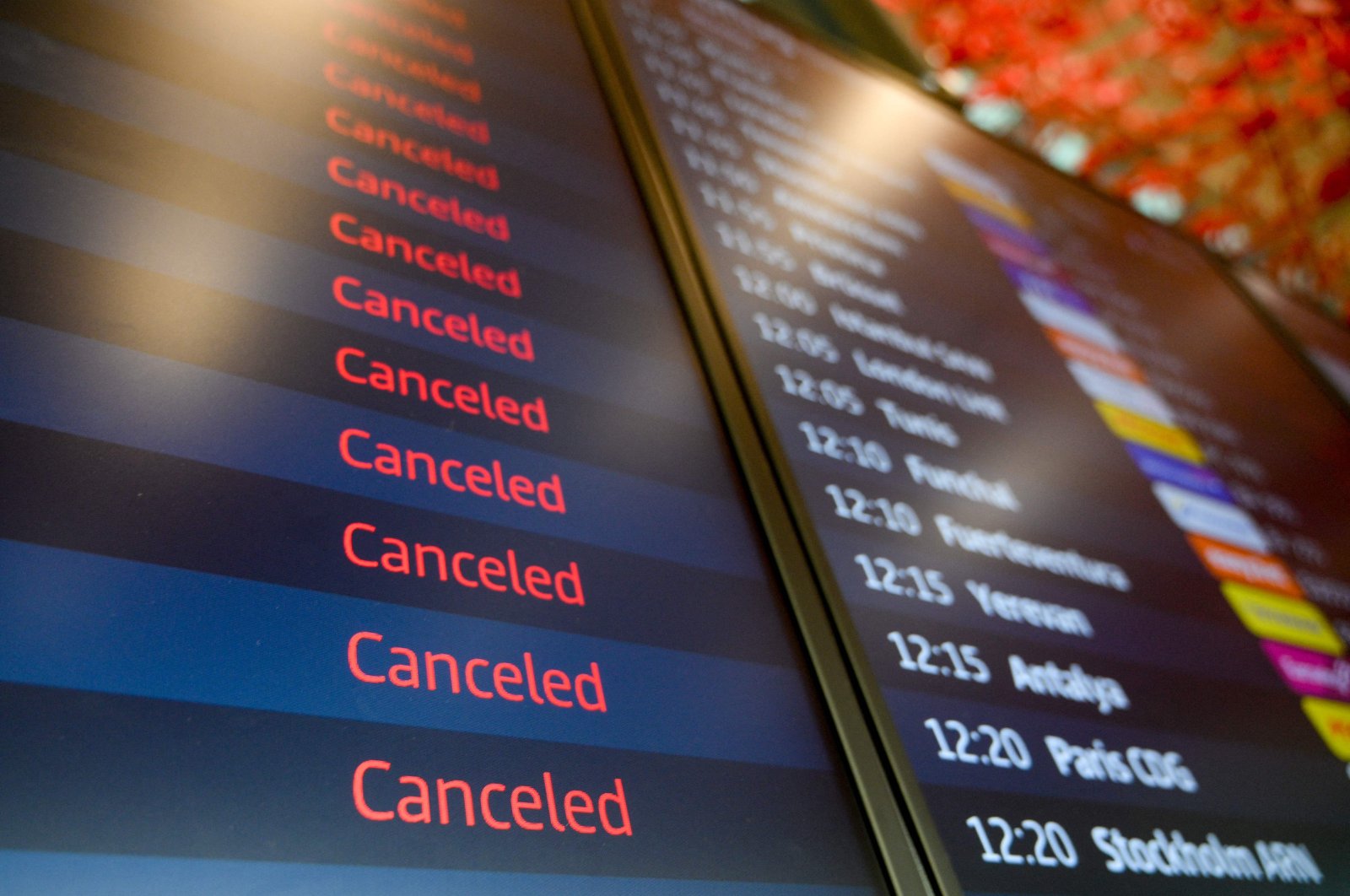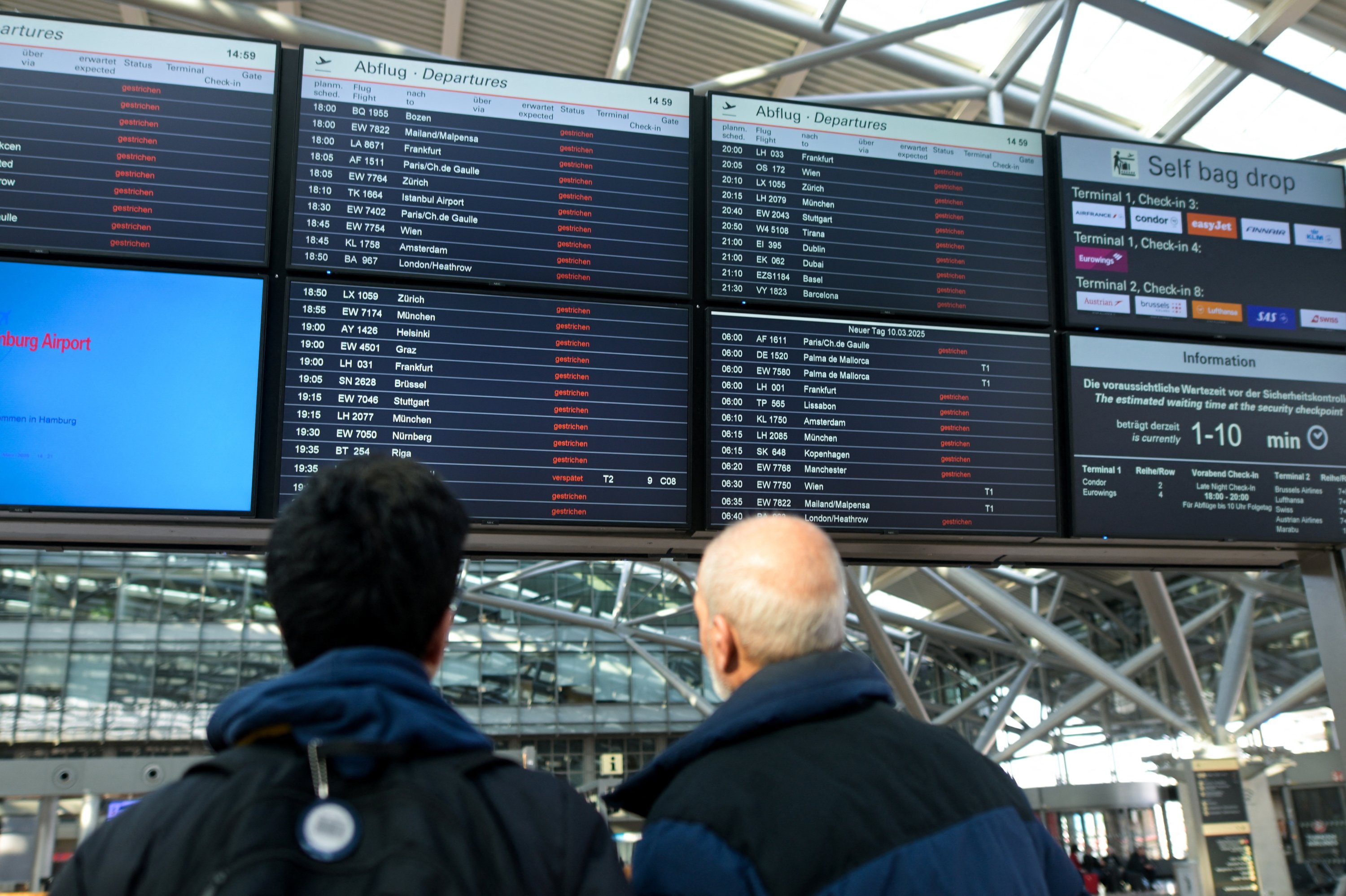
A one-day strike by workers at 13 German airports, including some of Europe's busiest hubs such as Frankfurt and Munich, and all the country's other main destinations, caused the cancelation of thousands of flights on Monday.
The 24-hour walkout, which started at midnight, involved public-sector employees at the airports as well as ground and security staff.
Some 3,400 flights were affected by the industrial action, impacting around 500,000 passengers, the German airport association ADV said.
At Frankfurt, the country's busiest airport, operator Fraport said no passengers would be able to board and that disruptions would "almost certainly" affect transit travel, according to German daily Bild.
At the airport, 1,054 of the day's 1,116 scheduled takeoffs and landings had been canceled, Deutsche Presse-Agentur (dpa) reported, citing airport traffic management.
All of Berlin Airport's regular departures and arrivals were canceled, while Hamburg Airport said no departures would be possible. Cologne/Bonn Airport said there was no regular passenger service, and Munich Airport advised travelers to expect a "greatly reduced flight schedule."
Airports in Bremen, Cologne, Dortmund, Duesseldorf, Hamburg, Hannover, Leipzig, Munich and Stuttgart were also affected.
The Verdi union said Friday it was calling on public sector workers and some 23,000 employees of ground handling service providers to walk out to send a message to management.
"We regret the inconvenience that this strike will cause for passengers," said the union's deputy chair, Christine Behle.
"But without the pressure of industrial action, there will be no movement in the negotiations."

The Verdi service workers union’s strike targeted the Hamburg, Bremen, Hannover, Berlin, Duesseldorf, Dortmund, Cologne/Bonn, Leipzig/Halle, Stuttgart, Frankfurt and Munich airports. At the smaller Weeze and Karlsruhe/Baden-Baden airports, only security workers were called out.
The union announced the strike on Friday. But at Hamburg Airport, it also added a short-notice walkout on Sunday to the strike on Monday, arguing that it must ensure the measure was effective.
The so-called "warning strike," a common tactic in German wage negotiations, relates to two separate pay disputes: negotiations on a new pay and conditions contract for airport security workers and a wider dispute over pay for employees of federal and municipal governments.
The latter has already led to walkouts at Cologne/Bonn, Duesseldorf, Hamburg and Munich airports. Pay talks in that dispute are due to resume on Friday, while the next round of negotiations for airport security workers is expected to start on March 26.
The union's demands include a pay rise of 8% or at least 350 euros ($380) more per month and higher bonuses for particularly stressful activities.
The union said, "We are forced to go on this warning strike because the employers have not yet made an offer in the ongoing collective bargaining negotiations for public sector employees and have shown no willingness to meet our legitimate demands."
